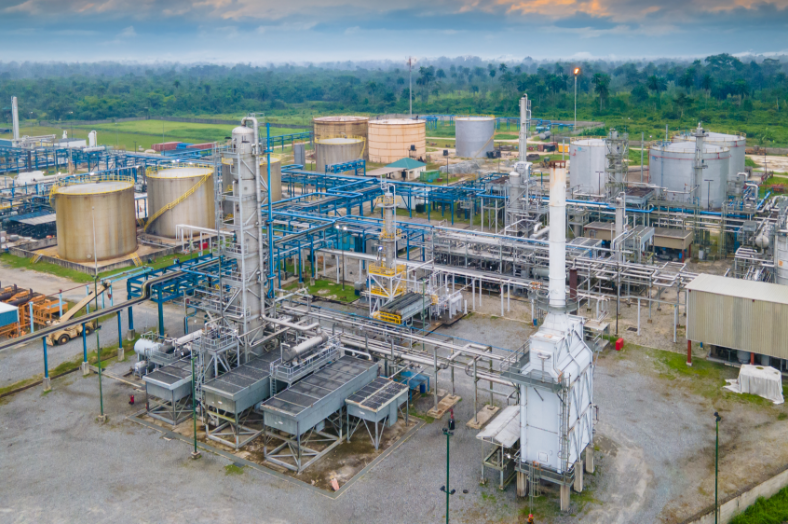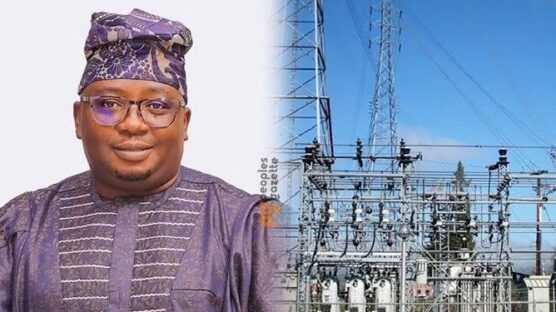Energy
FG’s $1.3bn debt to gas producer hampers new investment
The Managing Director of Shell Petroleum Development Company of Nigeria, Osagie Okunbor, has highlighted a significant financial challenge confronting gas producers in the country.
Representing the Oil Producers Trade Section, an association comprising international oil firms, Okunbor revealed that the industry is grappling with outstanding payments totalling $1.3 billion.
This revelation came during a comprehensive stakeholders’ consultative meeting held in Abuja, which saw the participation of a broad spectrum of industry players, including international and local oil entities, major and independent oil marketers, LPG dealers, and regulatory bodies.
Okunbor underscored the detrimental impact of these unpaid debts on the sector, pointing out that such financial hurdles severely limit the capacity for further investments within the gas industry.
The meeting served as a crucial platform for dialogue among the various stakeholders, aimed at addressing pressing financial issues and exploring avenues for fostering a more conducive investment climate in Nigeria’s oil and gas sector.
He said, “At the last count, we are owed about $1.3 billion for gas that has been produced and sold in the past. If you are owed that kind of money across the board, you can imagine the impact. I work for Shell and my colleague here with me works for Chevron, and I think between us we are owed probably the largest share of this.
“So it doesn’t create the environment for you to want to put in more and it is a key issue for the Decade of Gas discussions that we are having. How do we crack this problem so that you incentivize people to make investments?
“How do we build the infrastructure? You heard the minister talk about key infrastructural projects that are under construction such as the AKK (Ajaokuta-Kaduna-Kano pipeline project) and others.”
Okunbor also said that gas pricing must be bankable, stressing that the cost should not be high but should be sufficient to drive investments in the sector.
He said, “They’ve just released the price (for gas). I don’t want to cause any controversy, but it is due for review in April.
“So, we will be making our inputs to the authority to make sure the price is cost-reflective. It is very important because if it is not cost-reflective it is going to involve a whole lot of things.”
The Minister of State for Petroleum Resources (Gas), Ekperikpe Ekpo, said that in a strategic move to bolster the domestic gas sector and alleviate the financial burden on consumers, the Federal Government has initiated a series of interventions to substantially lower the price of Liquefied Petroleum Gas (LPG), commonly called cooking gas.
At the stakeholder meeting, the minister also talked about the government’s commitment to sustainable development within the gas sector.
Ekpo outlined the administration’s focus on three key areas designed to drive growth and efficiency.
Among these critical initiatives, a significant emphasis is being placed on measures that would lead to a notable reduction in the cost of cooking gas, addressing one of the significant concerns of Nigerian households and businesses reliant on LPG for their daily needs.
This approach underscores the Federal Government’s dedication to enhancing the energy sector’s contribution to the national economy and improving the affordability of cooking gas for the broader population.
He said, “We will intensify efforts to increase upstream gas production, to bridge the significant gas supply gaps which continue to hamper our strategic economic sectors (gas to power and gas-based industries, as well as gas for export).
“It is imperative that we work together to unlock more resources to provide gas for power, gas-based industries, LNG export, and domestic use, fostering economic growth, ensuring energy security, and eradicating poverty, which is a cardinal objective of President Bola Tinubu’s Renewed Hope Agenda.
“We will prioritise the domestication and penetration of LPG and implement measures to significantly reduce the price of cooking gas for our people, ensuring it becomes more accessible, available, and affordable for our citizens.”
Energy
Communities demand accountability of 3% HCDT from OML54

Members of OML54 communities have asked Aradel Holdings Plc, to make available the details of the 3percent host community development fund accruable to the community as enshrined in the Petroleum Industry Act, PIA.
The people who made the demand during a town hall meeting with the management of Aradel Holdings Plc, insisted that the host communities ought to know how much has accrued to them from the 3 percent HCDT fund, either quarterly or annually.
Aradel, formerly known as Niger Delta Petroleum Resources Plc, NDPR is the operator of OML54 and Aradel Modular Refinery in Ahoada East and Abua/Odual Local Government Area of Rivers State. The company in the past, has been at loggerheads with its host communities leading to endless protests.
Speaking, the General Secretary of Ogbele community, Comrade Solomon Oyagiri, lamented that Aradell Holdings has not accorded the community its due, despite developmental promises made by its pioneer Managing Director, Aret Adams.
Oyagiri cited the continuous refusal by the company to give details of the 3 percent development fund accrued to it as one of the vexing situations created by the company, and queried the non payment of equitable fees from badges and vessels trucking at the community river bank.
He alleged that the selective justice created to cover the fraud and mismanagement of the host community trust fund was the bane of development, progress and the cause of myriads of litigations to contest injustice and marginalisation by the people and urged the company to align with genuine community representatives.
“A Post Environmental Impact Assessment, as a result of hazardous pollution and accompanying economic deprivation and social benefits to numerous fishermen and women arising from Aradel’s trucking operations on its coastal lines has not been carried out.
“We frowned at the continuous refusal by Aradell Holdings Nigeria Plc to implement the agreement reached with the community after the September 2022 peaceful protest. Even some staff of Aradel have teamed up with some of our community members to thwart the reached agreement.
“Aradel has refused to employ our sons and daughters from the host families into managerial positions; there is lack of total employment, refusal to adhere to the Local Content Act and impoverishment of our people through lack of award of contracts.”
Responding, the Community Relations Manager, Aradel Holdings Plc, Mr Blessing Okpowo, promised to take their demands to the management and assured the people that the community’s maternity home would soon be upgraded to a cottage hospital where healthcare services would be accessible and affordable.
Okpowo urged the people to be united in their demands and affairs, saying, “only unity of purpose can attract the needed development,” and assured the people of a regular interface with the community leadership.
Energy
FG reverses halt on transfer of electricity oversight to states


The federal government has reversed its decision to halt the transfer of electricity regulatory oversight to state governments.
On Monday, Adebayo Adelabu, the Minister of Power, addressed the two-day stakeholders’ workshop organised by the Nigerian Electricity Regulatory Commission (NERC) in Lagos.
The workshop, focused on the implementation of the Electricity Act, was attended by the 36 state commissioners of energy and power.
The Minister’s remarks followed an announcement made a few days earlier regarding plans to pause the transfer of regulatory autonomy to states and to conduct a test phase with select states.
This announcement had led to confusion about whether the minister had the authority to issue such a directive contrary to the Act.
However, at the workshop, Adelabu clarified that the federal government would adhere to the law.
“Granting regulatory autonomy to states is a provision of the new Act, and no individual can override the Act. It’s a legal provision that must be respected by all state officials,” he stated.
Adelabu also noted that the workshop aimed to address potential challenges during the transition.
In April, NERC had transferred oversight of the electricity market to three states: Ondo, Ekiti, and Enugu.
The Electricity Act requires NERC to transfer oversight within six months after a state complies with the legal process.
Energy
Oil inches upward following report surrounding the death of Iran’s president


Oil prices saw a slight increase on Monday following report surrounding the death of Iran’s President Ebrahim Raisi, his foreign minister and others in a helicopter crash. The development is seen to have contributed to the overall market sentiment, which also included last week’s gains.
Brent oil futures for July saw a 0.3 percent rise, reaching $84.19 a barrel, while West Texas Intermediate (WTI) crude futures experienced a 0.2 percent increase, trading at $79.70 a barrel.
In a tragic turn of events, a helicopter carrying Iranian President Ebrahim Raisi and Foreign Minister Hossein Amirabdollahian crashed over the weekend in the mountainous terrain of northwestern Iran, with both leaders report dead. The loss of President Raisi comes at a time of heightened tensions between Iran and Israel, following a series of strikes exchanged earlier this year.
Prior to the report, crude oil prices had been experiencing an upward trend due to several key factors. Positive indicators such as the possibility of U.S. interest rate cuts and improving demand in China have contributed to this increase in appetite for crude.
Furthermore, the U.S. government’s announcement of its purchase of approximately 3.3 million barrels of oil to refill the strategic petroleum reserve has also bolstered market confidence. However, ongoing instability in the Middle East and its potential impact on oil supplies remains a significant concern, keeping Brent oil prices above the $80 mark for most of 2024.
As the week unfolds, oil markets are exercising caution in anticipation of crucial announcements regarding U.S. interest rates and the economy. The release of the Federal Reserve’s late-April minutes and speeches from several Fed officials would also be closely scrutinised for insights into potential policy shifts.
Additionally, the upcoming Organization of Petroleum Exporting Countries and allies (OPEC+) meeting on June 1st is expected to provide updates on the cartel’s plans to maintain ongoing production cuts, which could have a significant impact on global oil supplies.
-
Finance4 months ago
Court orders Sen. Victor Umeh to repay N136m bank debt to AMCON
-



 Abuja Update3 months ago
Abuja Update3 months agoUNDP, FG partnership needed to achieve inclusion, equity- Minister
-
Abuja Update2 months ago
Banks drive stock market performance with N147bn gain
-
capital market2 years ago
Rt.briscoe, FBNH, Others halts negative performance of stock market
-
Submission Guidelines5 months ago
CALL FOR SUBMISSIONS: POETRY COLUMN-NND
-



 Health1 month ago
Health1 month agoCapacity training will reduce migration of health workers- NPHCDA
-



 Business4 weeks ago
Business4 weeks agoTingo Group unveils Tingo Electric, Tingo Cola drink at Lagos launch
-
News5 months ago
Oil thieves sponsoring malicious media campaign against Navy – Spokesman




